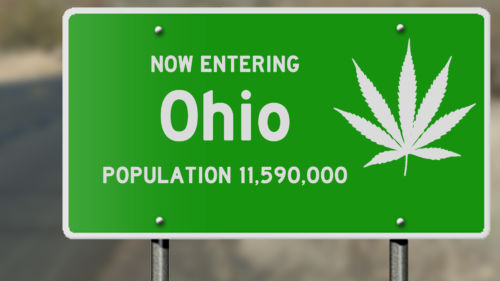Free Consultation
Available 24/7 for Immediate Help
(614) 263-5297

Medical marijuana is coming to Ohio. House Bill 523 went into effect on September 8, 2016, and allows Ohioans to legally purchase medical marijuana, as long as they meet certain medical conditions, and receive a doctor’s recommendation.
When it was passed, Ohio’s medical marijuana law was intentionally vague with regard to how marijuana cultivation operations and medical marijuana dispensaries would be set up. Now, almost a year later and one year before Ohio is set to roll out its medical marijuana program, the rules, regulations, standards, and procedures for growing and selling medical marijuana in Ohio are starting to take shape.
In April of 2017, the rules governing Ohio’s cultivation and sale of medical marijuana cleared the final hurdle – approval by the Ohio legislature’s Joint Committee on Agency Rule Review.
Rules and regulations for retail dispensaries, product processors, and testing labs are still being revised, but are scheduled to be in place by early September.
To become a marijuana cultivator, applicants must meet a number of requirements that include certain financial criteria, local approval for their proposed site, and the submission of security and quality assurance plans.
Ohio currently allows for 24 cultivator licenses: 12 Level I licenses, which will allow for up to 25,000 feet of growing space; and 12 Level II licenses for sites up to 3,000 square feet. A Level I license will cost $200,000 (a $20,000 application fee and a $180,000 license fee), while a Level II license will cost $20,000 (a $2,000 application fee and an $18,000 license fee). Cultivation licenses will be awarded to the best applicants from around the state, as opposed to the best applicants in each of four regions, as was initially proposed.
Once Ohio’s medical marijuana program is in place, starting in September 2018, the commerce department will decide whether to issue additional licenses.
State legislators have expressed concern over whether people with criminal conviction can participate in Ohio’s medical marijuana program. However, legislators also recognize that some of the people who are best-positioned to understand Ohio’s burgeoning medical marijuana industry have been engaged in illegal marijuana activities for decades.
Despite passage and imminent implementation of Ohio’s new medical marijuana law, Ohio suburbs have not expressed a uniform response as to whether or not to allow new marijuana businesses. Some cities have welcomed the marijuana dispensaries with open arms, while others have opted to ban these businesses from operating within their borders due to legal and safety concerns.
In June, the city of Dublin, Ohio voted to bar dispensaries from opening in the city, citing the fact that marijuana is still illegal at the federal level. City officials cited concerns that the medical marijuana business will likely be cash-based one, which could attract crime such as robberies and theft. The potential increase in crime could strain city resources, as dispensaries might ask police officers to come so employees could shut down at the end of the day.
In October, Upper Arlington instituted a 12 month temporary ban during which time the city will seek additional on how medical marijuana will work in Ohio, and its potentially negative impact on property values.
Other communities in Northeast Ohio, like Lorain, Painesville, Eastlake, and Richmond Heights, have said they are open for Ohio’s new medical marijuana businesses and are seeking entrepreneurs and investors who what to start businesses in their towns.
For the time being, many Ohio communities are adopting a wait-and-see approach.
To alleviate the concern over medical marijuana being a cash-only business, Ohio’s medical marijuana law proposed a closed-loop, cashless system that would operate like a prepaid debit or gift card. Under the proposal, patients and registered caregivers would add money to their accounts by check, credit card, or cash at a state agency. Money in the account could be used at a dispensary, which would also have an account it could use to buy products and pay bills. If a business needs to pay an entity out of the closed-loop system, it could cut a check to the payee. If the system is adopted - which is still a big “if” – it would allow every transaction related to the purchase and sale of medical marijuana in Ohio to known.
If you have questions about Ohio's new medical marijuana law, contact Wolfe Legal Services today. I work with people throughout greater Columbus, including Dublin, Bexley, Upper Arlington, New Albany, Marysville, Hilliard, Delaware, and Newark, and throughout Franklin County, Delaware County, Pickaway County, Fairfield County, Union County, and Licking County. Call (614) 263-5297 any time or complete our online form.
© 2026 Wolfe Legal Services
View Our Terms & Conditions | Privacy Policy
Website Maintained and Hosted by Adamedia & Adam The Computer Guy